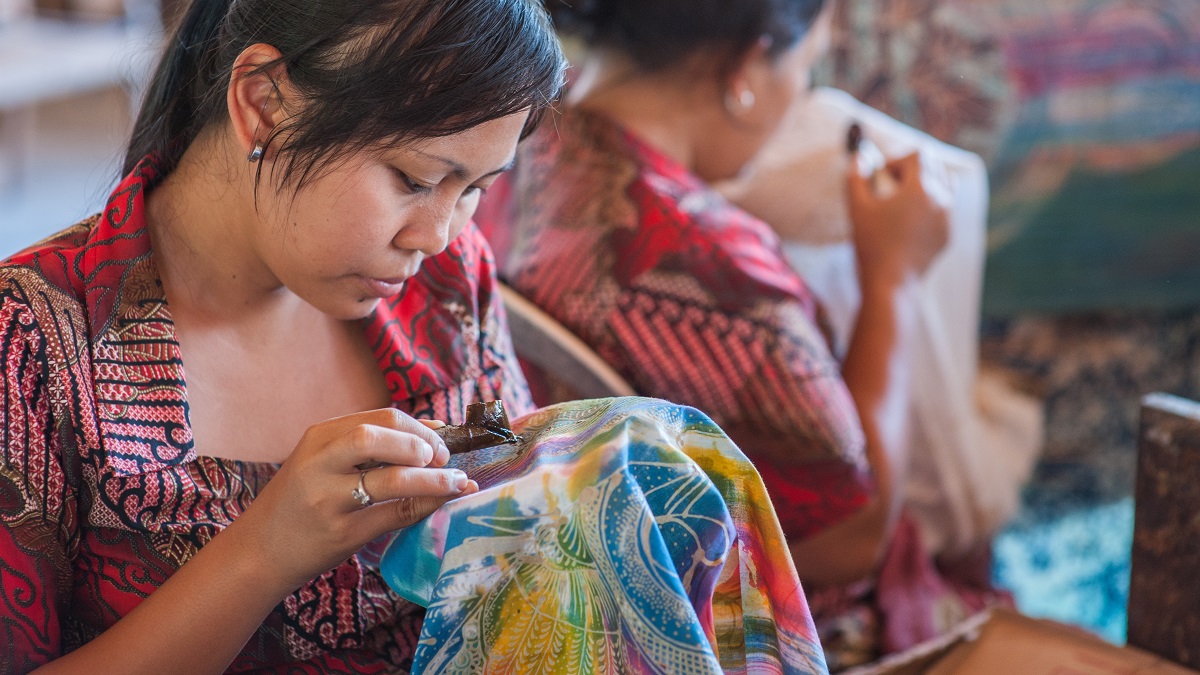The G20 sheds light on the transformative power of cultural and creative sectors, and how international organizations including UNCTAD can help.
© Shutterstock/Khairul Effendi | As a textile technique, Batik art has evolved to become a creative industry and tourist attraction that support livelihoods in Indonesia.
G20 culture ministers met in the Indian city of Varanasi – also known as Kashi – culminating in the release of the “Kashi Cultural Pathway” on 26 August.
This outcome document pledges G20 support to fortify cultural and creative industries, particularly in developing countries, drawing on expertise from international organizations including UNCTAD.
The Kashi Culture Pathway will be presented at the G20 Leaders’ Summit, slated for 9 and 10 September in New Delhi.
The G20 comprises the world's largest economies, making up around 85% of the global GDP and over 75% of world trade.
“We at UNCTAD attach great importance to cultural and creative industries because of their profound implications for trade and development and their transformative power across the economic, social and environmental dimensions of sustainable development,” UNCTAD Secretary-General Rebeca Grynspan says.
UNCTAD, the UN body for trade and development, has been instrumental in championing the creative economy. Its involvement in the G20 culture working group emphasizes a vision that is both focused on development and aligned with global trade dynamics.
The G20 culture ministers thanked all collaborating entities for their contributions.
Why creative economy matters
Amid the myriad challenges facing the world – from post-pandemic recovery to an expanding digital divide – the creative economy is ripe for innovation, investment and trade, promising a feasible development option especially for developing countries.
The latest available data from UNCTAD show that creative services accounted for 21% of total service exports in 2020, a significant leap from 12% a decade earlier.
As the sector is multifaceted and transversal, the Kashi Cultural Pathway calls for greater cooperation and dialogue on aligning and strengthening monitoring frameworks, as well as effectively classifying cultural and creative sectors on a global scale.
This will rely on the groundwork laid by key international organizations, namely UNCTAD, the UN’s cultural agency UNESCO, the International Labour Organization and the Organisation for Economic Cooperation and Development.
Since 2004, UNCTAD has been working to elevate the creative economy on the global economic and development agenda.
Its creative economy programme generates analysis through a trade lens, providing insights on past and future trends, while enhancing data-led understanding of trade in creative goods and services, intellectual property, ideas and imagination.
Datasets on creative goods, services and related industries are available on UNCTADstat.
Redoubling efforts for creative economy
UNCTAD is redoubling efforts with UNESCO to bring a sharper focus and boost understanding on cultural products within creative industries, in line with the G20's Kashi Cultural Pathway.
In 2024, UNCTAD's forthcoming global report on the creative economy will shed light on emerging trade trends in creative goods and services, underlining the sector's vital role in the global economy.
"We're elated by the G20's recognition of our efforts. It's now crucial for us to propel forward, focusing diligently on collecting data and refining the evidence-based statistical framework,” says Miho Shirotori, acting director of the division on international trade and commodities at UNCTAD.
“The data and statistical framework are the backbone of policymaking. We call upon our partners to join us in this critical journey."

